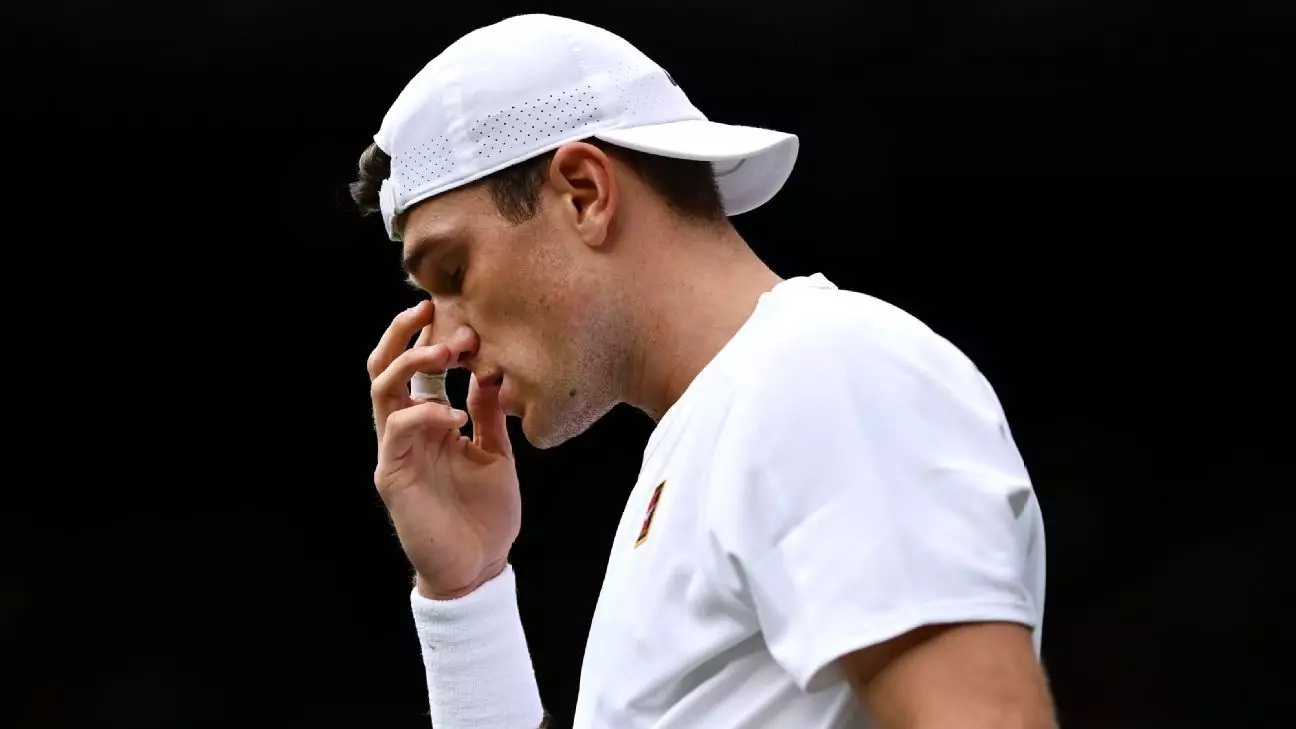The recent Wimbledon encounters serve as a stark reminder that in tennis, as in life, potential often remains concealed beneath the surface until resilience and determination begin to surface. Jack Draper, a promising British talent, had been eagerly anticipated to challenge the status quo and potentially create memorable moments on the grass courts of SW19. Instead, his defeat at the hands of Marin Cilic not only curtailed his dreams but also laid bare the harsh reality of the sport: talent alone is insufficient without mental fortitude and strategic execution. Draper’s exit highlights an unsettling truth—young athletes must grapple with immense pressure, high expectations, and the unpredictable nature of competition, which can expose their vulnerabilities.
Marin Cilic’s Resurgence: Defying Odds and Reclaiming Glory
Cilic’s victory was more than just a win; it was a seismic statement about perseverance. After suffering multiple knee surgeries and disappearing from the spotlight, few anticipated his ability to re-enter the competitive arena at such a level. Yet, evidence emerges that resilience breeds redemption. His triumph over Draper—who was ranked in the top five on grass—was characterized by commanding serving accuracy and relentless groundstrokes, directly challenging assumptions about the shortening of athletic careers. Cilic’s emotional response post-match underscores the profound personal significance of this victory—proof that with unwavering determination, setbacks are just setups for a glorious comeback. His story fuels the narrative that age and injury are not the death knell but mere chapters in a longer story of resilience.
Wimbledon’s Diminishing Seeds: A Sign of Shifting Paradigms
This year’s Wimbledon has been an anomaly in many respects. The early elimination of several top seeds has resulted in the competition having the fewest players progressing past the third round since the tournament adopted the 32-seed format in 2001. Such a phenomenon raises fundamental questions about the current state of competitive tennis. Is it a reflection of a deeper talent disparity, or are we witnessing a shifting in the balance of power among emerging players? The structural vulnerabilities in the seedings expose a sport in flux, where traditional dominance is challenged by an influx of talented outsiders who refuse to be intimidated by reputation. The tournament’s unpredictable nature demonstrates that grit and dedication can level the playing field, diminishing the importance of rankings and seedings as sole indicators of potential success.
British Hopes and the Myth of National Tennis Revival
Home-grown success stories are often intertwined with national pride, especially when Wimbledon’s history is replete with legendary British champions. This year, hopes soared for a groundbreaking achievement—up to five British men advancing to the third round—a feat not seen since 1962. Yet, the swift elimination of players like Evans, Fery, and Pinnington jettisoned that dream, casting doubt on the resilience of Britain’s tennis pipeline. Nevertheless, Jack Draper, perched as the last hope, embodied the tenacity that defines national sporting resilience. His ability to rally against Cilic and momentarily inspire the crowd revealed that even in moments of disappointment, there remains an unbreakable spirit that keeps hope alive. Such instances reinforce the idea that success isn’t solely about victory, but about the heart and grit displayed in the face of adversity.
The Unpredictability of Grass Court Tennis: A Test of Adaptability
Grass courts have long been heralded as the most capricious surface, demanding a unique blend of agility, precision, and mental toughness. Draper’s struggle against Cilic underscored how mastery on grass hinges on more than just power; it requires adaptability—a nuanced understanding of how the ball reacts, coupled with composure amidst mounting pressure. The match exemplified this delicate dance, with Cilic’s scorching service returns clashing against Draper’s attempts at resurgence. Ultimately, the game’s merciless nature showed that success often favors those who stay calm under fire, quickly adapt to changing dynamics, and maintain relentless focus. The unpredictable nature of grass in particular ensures that even the most promising talents can fall victim to its whims, emphasizing that longevity in tennis demands continuous learning and emotional resilience.
Beyond Victory and Defeat: The Higher Narrative of Tennis
While the story of Draper’s upset loss might seem ordinary—a young player faltering against a seasoned veteran—the deeper lesson lies in the sport’s fundamental truth: resilience and passion are the true currencies of success. For Cilic, this was a testament to patience, grit, and a willingness to embrace the challenges posed by injuries and time. For Draper, it’s an affirmation that setbacks are not the end but part of an ongoing process of growth. Tennis, at its core, is a reflection of life’s unyielding demands: adversity is certain, but so is the potential for remarkable comeback. These stories push us to reconsider what success truly means—not just winning matches, but the unwavering pursuit of excellence amid inevitable hardships.


Leave a Reply